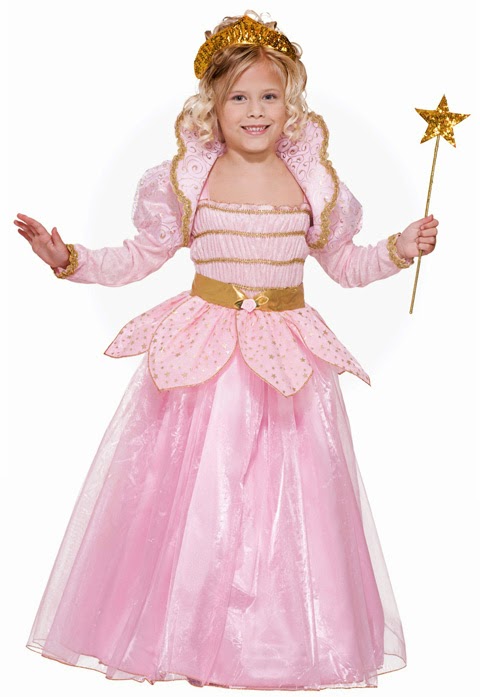Advising parents to just chill out already is a popular meme these days, but if you take the central claims of this particular chill out argument, what you find is a complete failure to deal with the actual underlying issues. It's a fabulous exercise in missing the point. So let's take a look:
1. Benedikt writes that disgust for the pink and princessy "has always struck me as some weird sort of female self-loathing." The writers she quotes also assume that underneath the rejection of the pink glitter there's a profound dislike for and devaluation of femininity.
The thing is, nobody here stops to ask where this version of femininity came from, why it's so astonishingly dominant in every item that will ever be marketed to or for girls (from diapers to prom dresses to school supplies to power tools to assault rifles for the love of god), or what other, more serious, gender messages might accompany it. The sheer ubiquity of the pink princess crap in itself should give one pause. The monolithic vision of what femininity amounts to (and how it's valued, and how flexible it is, and how it fosters - or not - a sense of autonomy and an open range of viable choices for girls...) in this view should give one pause. The very act of equating the massive princess marketing machine with "female culture" is absurd. And damaging.
2. Benedikt et al scoff at the idea that girls who play at being princesses will grow up to be princesses. As if this is what we're worried about. As if it's just as simple and straight forward as that.
 |
| But you can grow up to be a princess. |
3. Parents of little girls can either roll their eyes in disgust, or embrace the pink princess phenomenon. Make your choice.
This right here is the biggest issue. The pink princess dynamic in our culture needs to be addressed. Girls need to understand that they will be presented with problematic versions of femininity their whole lives, and the best thing they can do is learn to habitually engage with these hypotheses on what it means to be a girl/woman in a rational way. By the same token, boys will be presented with problematic versions of masculinity their whole lives, and the best thing they can do is learn to habitually engage with these hypotheses on what it means to be a boy/man in a rational way. Seeing yourself as having options, trying out different activities and roles, embracing the things that work for you and letting the rest fall by the way... these are all a part of growing up to be a functional, thriving adult. For a girl or a boy.
 |
| Talking with kids - a parent's superpower |


I can get on board with the claim that rolling your eyes at the things we code as feminine in little girl world isn't a good idea. But it's not clear from these eye-rolling anecdotes that the parents in question didn't have the more involved conversations you advocate for at an earlier point when the Benedikt wasn't around.
ReplyDeleteYou can also advocate for princesses like Fiona, who can take care of themselves and have real, reciprocal relationships. On the other hand, she was locked in a tower for half her life.
ReplyDeleteIn my experience, the thing that puts all the parents on edge about princess culture is that there's much more talk about how the girls are princesses all the time, every day, in a way that you don't see with the superheroes or army rangers or whatever games for boys. When a baby girl is born, everyone talks about how they're the princess, and all their clothes have to say princess, etc. I think this makes it much more of an inhabited identity than an assumed-for-playtime identity for girls.
ReplyDelete"They can talk about how fun it is to play dress up, but how hard it is to really be a princess (or a superhero, or a ninja, or whatever) full time."
ReplyDeleteWhat gets me is the unrealistic way that the whole princess thing plays out. In reality, there are costs and benefits to being a princess - privileges and responsibilities and limitations on what a princess can do/say/be. But what it means to be a princess in our culture is just to be a privileged, spoiled little thing.
It's so funny you list finger painting - my daughter decided she didn't like wearing princess dresses all the time precisely because she would get all upset whenever they got dirty or stained. She had quite the girly phase for awhile, abetted by her aunt and grandma.
ReplyDeleteBut this brings up the other reason a lot of parents object to princess culture. Being a princess often means being dainty and not engaging in a lot of the active, adventurous, messy learning experiences that should be a part of childhood.
Agreed. And if they have to have a princess phase, I guess we can talk up the capable and assertive princess Fiona to them, as Anonymous mentioned above. Although it doesn't seem that Fiona is really included in princess culture. I think when most kids think princesses, they're thinking the Disneys.
DeleteIt's the shoes that get me. The little plastic heeled shoes that they can't even walk in. My nieces have 3 or 4 princess costumes, and every one of them came with those awful shoes. That alone is enough to put the kibosh on princess play.
ReplyDelete